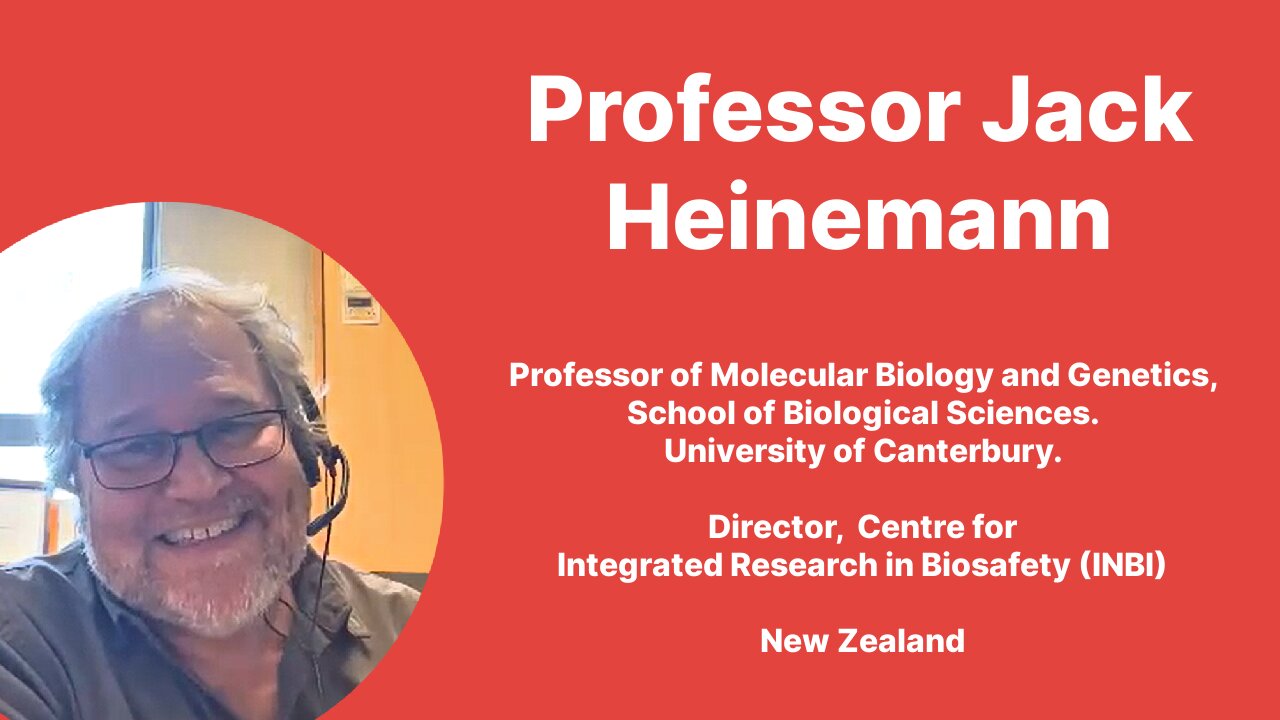Premium Only Content

Biotechnology - Risk that scales up as efficiency increases. Heinemann on risk management & policy.
Professor Jack Heinemann PhD Molecular Biology (Oregon), BSc(hons) Biochemistry and Molecular Biology.
Professor of Molecular Biology and Genetics, (School of Biological Sciences). University of Canterbury. Director, Centre for Integrated Research in Biosafety (INBI) UC.
This interview is essential viewing for scholars, scientists & policy-makers interested in ethics, biotech, policy & the stewardship of biotech. Have you ever wondered about the ways new biotechnologies are speeding up, the efficiency of production increases, which inevitably increase tech output into the environment? How then do we judge risk? The product is a hazard - but how do we identify the potential for a hazard (the product) to cause harm?
Harm is a complex equation of the potential to cause harm [x] where a technology can cause harm. Risk is not the same as hazard. This is why risk assessment is so important. The potential for risk to scale up, what happens at scale - the scale gearing - is key.
As Heinemann notes 'Where harm can accumulate at scale transition, that's precisely where regulation is a solution to mitigate risks... if we say the technique is inherently safe & no product has to be regulated, then I can use those techniques out in the field. By deregulating the hazard, which is the organism I intend to change, unless you have commensurate regulations on the process, you deregulate when & how people use these techniques.'
This really important issue with Professor Jack Heinemann discusses complex scientific, & ethical issues critical for stewardship of biotech, including common assumptions & the dilemma of tech promises. It contains insight that can help look at risk with other, non-biotech technologies. These issues are often neglected in public discussions. Yet how we steward technology impacts the potential for benefit or harm. The case study of null segregants forms an important background to the discussion.
Paper under discussion: Heinemann JA, Clark K, Hiscox TC, McCabe AW and Agapito-Tenfen SZ (2023), Are null segregants new combinations of heritable material and should they be regulated? Front. Genome Ed. 4:1064103. doi: 10.3389/fgeed.2022.1064103
Professor Heinemann was interviewed by JR Bruning (sociologist) of Physicians & Scientists for Global Responsibility (PSGR), a New Zealand based charity, in January 2023.
For more interviews of scientists & doctors, please go to PSGR.org.nz
-
 10:24
10:24
Zoufry
2 hours agoThe Building That Shouldn't Exist : Fort Boyard
2913 -
 LIVE
LIVE
Grant Cardone
2 hours agoHow to Build Wealth in 2025 - Grant Cardone LIVE!
339 watching -
 LIVE
LIVE
I_Came_With_Fire_Podcast
8 hours agoEschatologist: This is EVIDENCE the Biblical END TIMES Are Coming Close
230 watching -
 1:08:18
1:08:18
VapinGamers
1 hour agoTools of the Trade - Almost Box Fresh EP-01a - !rumbot !music
3.23K1 -
 18:11
18:11
Actual Justice Warrior
2 hours agoMamdani Is In BIG TROUBLE
2527 -
 LIVE
LIVE
Astral Doge Plays!
3 hours agoDonkey Kong Bananza ~LIVE!~ Let's Go Bananas in This Bananza!
59 watching -
 3:24:34
3:24:34
Sgt Wilky Plays
3 hours agoDonkey Kong Bonanza and Coffee
1.72K1 -
 18:58
18:58
Clownfish TV
6 hours agoColbert CANCELLED. YouTube Blamed.
7.61K17 -
 LIVE
LIVE
AyeDeon
2 hours agoRage Induced Saturday ft. Call Of Duty
23 watching -
 15:55
15:55
T-SPLY
19 hours agoIllegal Immigrant Fakes Her Own Kidnapping - Blames DHS!
3.99K4